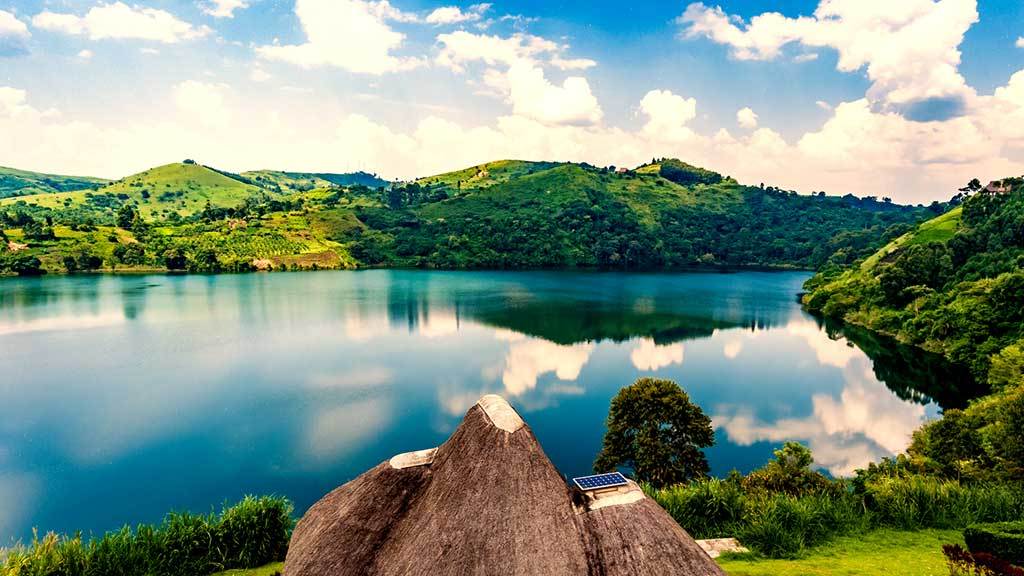Uganda is a landlocked country bordered by Kenya, Rwanda, Tanzania, Sudan and the Democratic Republic of Congo. It is classified as a plateau with beautiful hills, valleys and extensive savannah plains. The entire country lies above 900m above sea level gently sloping from the north towards the south. There is abundant rainfall and a rich land thus resulting in its beautiful extensively diverse vegetation.
Uganda’s tropical climate is tempered by, a warm climate in the lowlands that gradually cools as one travels further up into the mountains.
Uganda has a prolific population of animal, plant and bird species, amongst these spectacular features are the Mountain Gorillas found in the Bwindi Impenetrable Forest National Park and Mgahinga Gorilla National Park, as well as various primate species to be seen in the Kibale Forest National Park.
Uganda is also recorded to have over 1000 bird species, Lush vegetation, dense tropical forests, spectacular waterfalls, mountains and captivating scenery that include the Murchison Falls, Semliki Valley, the Sipi falls and Rwenzori Mountains, Mount Elgon and the Virunga Volcanoes.Visitors to the country are assured of a myriad of tourist attractions that include cultural safaris, wildlife safaris, Gorilla tracking, mountaineering, white water rafting, bird watching and sport fishing activities.
Population
Uganda has a population of over 27,616,000 million people.
Capital city
The capital city of Uganda is Kampala, located in the central region of the country. The city is the main business centre and the administrative headquarters for the country. Its origin dates to 1891 when the Kabaka of Buganda had his courts on both Rubaga and Mengo hills. The town grew and achieved a municipal status in 1950 and became a city in 1962.

